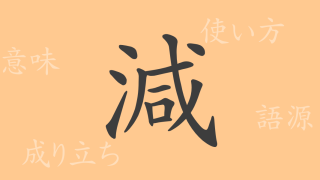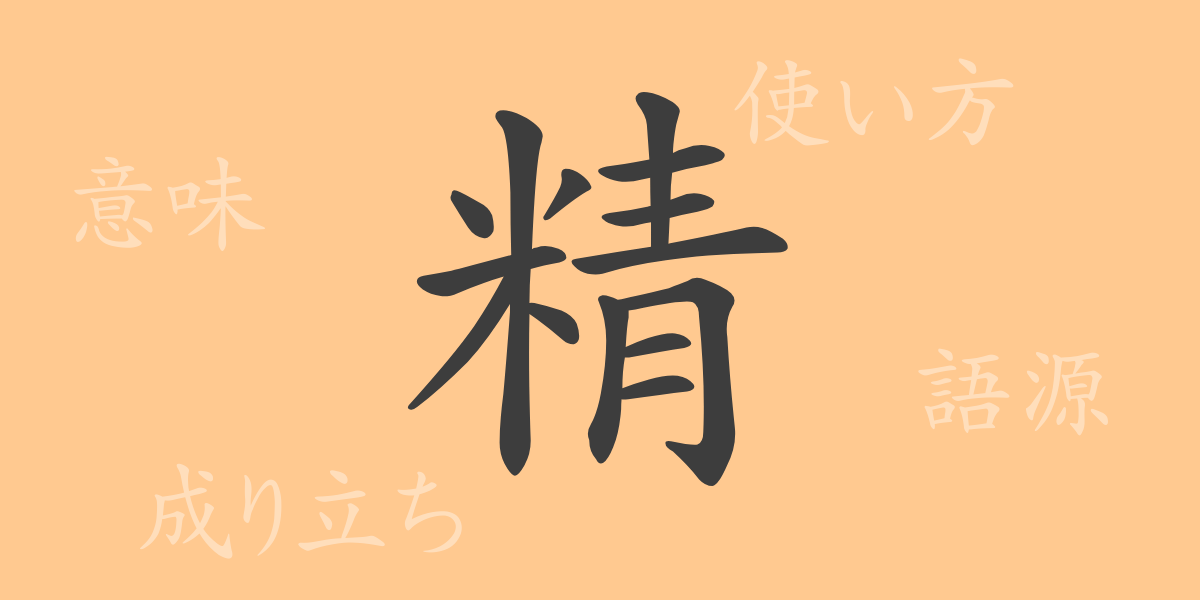Japan’s rich linguistic culture is supported by its unique writing system, where each kanji holds deep meanings and history. ‘精’ (セイ) is a commonly seen kanji in everyday life, representing concepts deeply intertwined with our lives. This article delves into the diverse allure of ‘精’, exploring its origins, contemporary usage, and its presence in idioms and proverbs.
Origins of 精
The kanji ‘精’ traces back to ancient China, originally depicted through the combination of ‘米’ (rice) and a component of ‘青’ (blue/green), symbolizing the process of washing and refining rice. This representation of effort and refinement evolved to encompass meanings such as ‘to give one’s all’ and subsequently ‘purity’ and ‘elaboration’.
Meaning and Usage of 精
‘精’ encompasses meanings such as ‘meticulous’ and ‘precise’, reflecting the care taken in tasks and attention to detail. It is also used in terms like ‘精神’ (spirit), denoting the soul or vigor derived from one’s inner strength and purity. The word conveys both physical precision and moral integrity.
Readings, Stroke Count, and Radical of 精
‘精’ is a versatile kanji within the Japanese language, known for its various readings and symbolic depth.
- Readings: On’yomi are ‘セイ’, ‘ショウ’; Kun’yomi include ‘きよ.い’, ‘きよ.まる’, ‘きよ.める’.
- Stroke Count: ‘精’ consists of 14 strokes.
- Radical: The radical for ‘精’ is ‘米’ (rice).
Idioms and Proverbs Using 精
There are numerous idioms and proverbs that feature ‘精’, each reflecting aspects of Japanese culture and values:
- 精進 (しょうじん): In Buddhism, it refers to continuous effort; also denotes vegetarian meals in this context.
- 精一杯 (せいいっぱい): To do something with all one’s might, to exhaust one’s full potential.
- 精魂込める (せいこんこめる): To do something with all one’s heart and soul, diligently.
- 精神統一 (せいしんとういつ): To concentrate one’s mind fully, to focus one’s spirit.
- 一粒万倍 (いちりゅうまんばい): A small effort or investment yielding great returns, akin to one grain of rice reaping thousands.
Conclusion on 精
The kanji ‘精’ profoundly reflects Japanese life and values through its representations of effort, purity, and intricacy. It plays a significant role in our language, embodying traditional and cultural expressions that resonate deeply within Japanese society. Through this exploration, we hope you have gained a deeper understanding of ‘精’ and its rich expressive power.

























